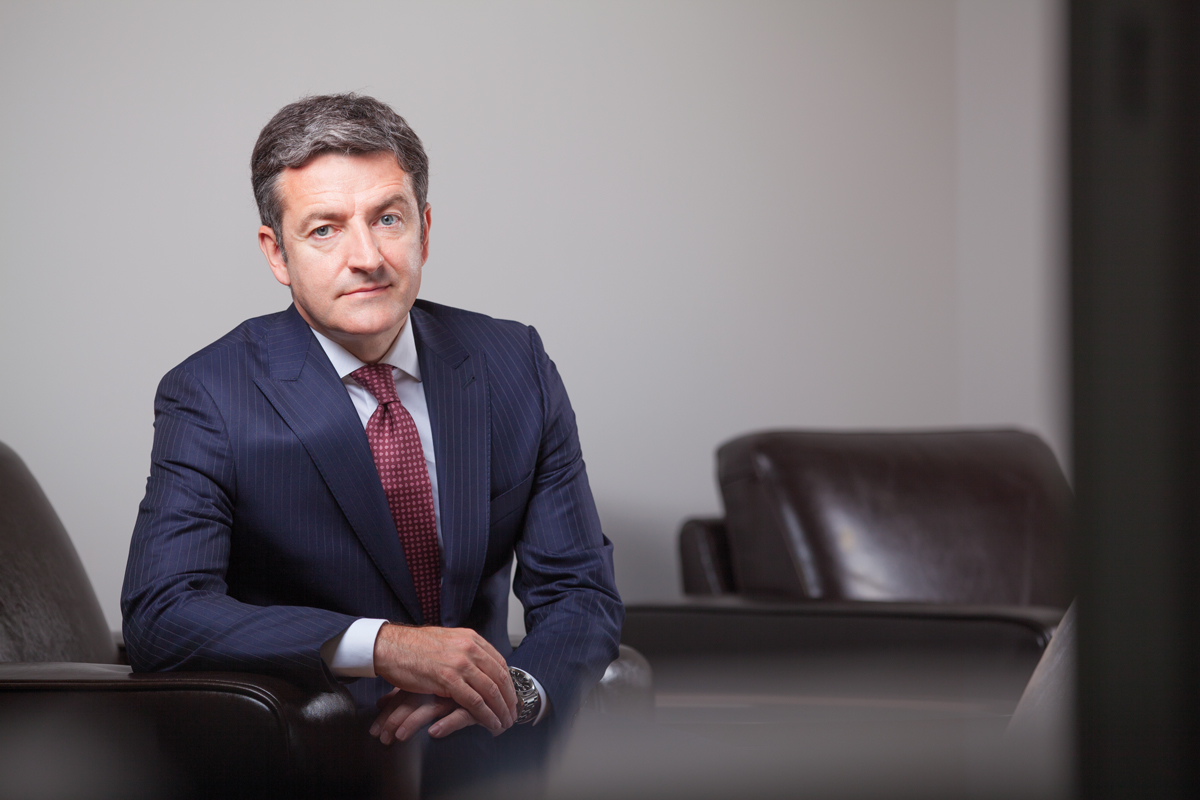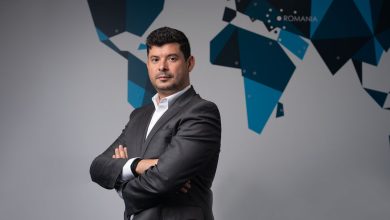Corneliu Bodea, President Romanian Energy Center: Technology, the right way to deal with Climate Change
We sat down with Corneliu Bodea, the President of the Romanian Energy Center (CRE), to talk about the association’s ongoing R&D projects and main objectives. We also discussed the role of Romania in the EU energy market and what the future in the energy field prepares for us.
The Romanian Energy Center (CRE) is a pole that aggregates energy sector’s companies and institutions whose interests are represented at European and international level. How was this center founded and what are its main objectives?
Corneliu Bodea: The Romanian Energy Center (CRE) association was founded in 2011 at the initiative of Mr. Stelian Gal along with Mr. Mihai Paun and a number of partners, companies from the energy sector in Romania. From the very beginning CRE’s main objective was representing the interests of the Romanian energy sector towards European Union (EU) relevant institutions.
Here we are after 7 years of continuous and fruitful work, with 22 members among which we can find the most important and relevant representatives of the energy industry in Romania, covering the entire energy value chain: generation, production, transport and distribution, supply, service and equipment suppliers, gas, oil, nuclear, electricity, coal and thermal energy. In CRE today there are 7 employees out of which 2 are working in Brussels. Also, we employ 5 research specialists, especially for the Horizon 2020 projects. We benefit of the great support of 3 members elected by rotation, for a six-month mandate who are an active part of the Directorate of the association.
We are happy to manage an annual budget of approximately euro 150,000 as income from membership contributions and an overall budget of euro 2,500,000 (at this moment) as financing from Horizon 2020 research projects.
Since the beginning, CRE works with enthusiasm, diligence and commitment in representing the interests of its members and the energy industry as a whole.
As representative of Romania’s energy community in Brussels, how do you act to fulfil these objectives?
Corneliu Bodea: First of all, we are present! There is a need for continuous presence and diligent work in order to be informed and contribute to the EU daily life. This is the reason why we have an office in Brussels and a permanent staff there. We also organize the annual event entitled Romanian Energy Day the7th edition this year. It is an already well-established conference which engages EU member states experts and policy makers in Brussels usually benefiting from the participation of the vice-president in charge of Energy Union, energy commissioners and other high ranked officials from the European Commission and European Parliament. We are also active in other events organized by our partners. An important role plays the cooperation with the Permanent Representation specialists in order to coordinate and bring the ‘voice’ of the energy industry into their attention. I believe that Romanian representatives need to spend more time meeting and discussing with EU officials, energy industry organizations or NGO’s in Brussels, in order to create more awareness of our objectives and to understand better what the future in the energy field prepares for us all.
What domestic/international projects does the association currently carry out and what are the priority areas on which you focus your activity?
Corneliu Bodea: We are currently involved into several domestic and international projects such as R&D projects on Horizon 2020 program, focusing on several areas from smart metering and electro-mobility to 100% integration of renewables into the grids. Another very important international project which confirms CRE’s position in the regional energy diplomacy is the coordination of CDCEP (Centre for Dialogue and Cooperation on Energy Projects) in the 16+1 format (China and 16 countries from CEE).
I would like to emphasize this project as a very important one for Romania, which has the coordination in the format for the energy domain. We are permanently involved in the representation of our members and the energy industry towards EU institutions as well to the Romanian institutions such as: ANRE, Ministry of Energy, The Commission for Industries and Services from the Romanian Parliament, etc. Last but not least, I would like to highlight a project that is particularly close to me namely the National Energy Strategy where CRE is represented and has an active role.
So, plenty of projects and work to be done!
As member of international consortia of projects funded by the European Commission within the Horizon 2020 Program, what is the value allocated to CRE?
Corneliu Bodea: The value is around 2,5 million euros for the projects we are involved in now and we are in competition also for other projects. The value is particularly significant when we consider that the funds cover the activity of Romanian specialists, but this is not all. The main gain for CRE and Romania is that the research results, in very important areas of the energy value chain, are open and prepared to boost the industry and applications in our domain. We are very happy that one of the projects (WiseGrid) has just received ‘The good practice of the year award in the technology and design category’. The prize was handed by the European Commissioner for Energy and Climate, Miguel Arias Cañete, key speaker of the Romanian Energy Day 2018 event.
We are members of 6 consortia in which we develop part of our activity and the overall amount of the allocated funds is more than euro 45 million euros.
Last year in November, CRE organized under the auspices of the Center for Dialogue and Cooperation on Energy Projects (CDCEP16+1) the first edition of the 16+1 Business Forum, Conference and Fair, an important milestone towards better cooperation and dialogue on energy matters between countries in Central and Eastern Europe and China. How was the event echoed in Romania?
Corneliu Bodea: The event was a huge challenge for CRE, having attending in Bucharest, Mr. Nur Bekri, Administrator of NEA (National Energy Administration) in China, energy ministries of Romania, Serbia, Slovenia, and deputy Ministers from the other 13 countries, ambassadors, over 50 companies with a turnover of more than 200 billion euros, represented at CEO, President or Executive Vice-president level, an important number of experts and speakers. The echo, both in Romania, China and the rest of participating countries was important and I believe that Romania deserves such a central role in the regional energy industry and policy. I myself and my small but very competent and enthusiastic team are happy for being able to contribute.
The meeting in Bucharest was an occasion for new discussions with the Chinese partners on the two strategic projects of major interest – reactors 3 and 4 in Cernavoda and a new lignite-fired group in Rovinari. How do negotiations with China General Nuclear Power Corporation take place and to what extent the parties’ requests can be harmonized in accordance with the EU legal provisions, given that the Chinese side requests a minimum guaranteed price for energy to be produced at Cernavoda in order to recover its investment, and this might not be approved by the European Commission?
Corneliu Bodea: Indeed, discussions have been held both on the Rovinari and Cernavoda projects during the Conference and business meetings, the presence of Mr. Nur Bekri, NEA Administrator was a good opportunity to intensify the cooperation on these topics.
Without being able to give more clarification on the exact outcome, I would only mention that in my opinion, the Cernavoda 3&4 reactors project is a very important one for Romania and we should progress rapidly with GCN or with different partners in order to finalize it. The whole energy strategy depends very much on whether this project will be carried out or not.
Regarding the Rovinari project, I believe that the Chinese clean coal technology providers could have a special interest for Romania in the light of the newly approved emissions targets.
If you had to define the place of Romania on the Europe’s energy map what role should our country play?
Corneliu Bodea: Due to its geopolitical location, our country must play a very important yet challenging role in the EU energy market and infrastructure. Being at the border of the Energy Union, there are a number of responsibilities that need to be considered together with an important role in securing the capacity of both natural gas and electricity as well as exporting this security to the surrounding countries. This is possible due to the fact that Romania has a diverse mix of resources and a solid, but rather old infrastructure. What I believe should be made clearer for the EU institutions is this important role that should attract more projects of common interest and greater importance in terms of the need to maintain the energy mix and the strong energy competence of the specialists. This is a task to be followed by NGO’s such as CRE and the Romanian government, which, unfortunately, does not seem to be fully aware of this reality.
We hear very often terms like energy hub, when talking about Romanian energy infrastructure, but what we see is a slight divergence from the clear path in the development of the energy industry as a regional energy hub. We need to modernize infrastructure, to secure a diverse mix of energy and maintain a strong energy-related service and equipment industry.
In view of the preparations for Romania to take over the Presidency of the Council of the EU in 2019 and the EU Clean Energy Package, what is your opinion on energy produced by coal-fired power plants, which currently covers an important share of the national energy mix? What are the alternative solutions, more efficient, that you encourage?
Corneliu Bodea: I believe that the Presidency of the Council of the EU might be a good chance to promote the important role of the Romanian energy sector for EU and the region, but there is more to be done unrelated to this temporary opportunity. The generation of coal-based energy is indeed under great pressure from two directions: the price of CO2 certificates and the new NOx regulation, especially NOx.
As I have already mentioned, we have to secure a diverse mix of generation, the power and the coal-based one is covering for the moment 20-30% of the needs. Moreover, in critical situations (especially severe weather conditions), coal plays a determining role. The introduction of the capacity mechanism which is also adopted in other countries, is, in my view, the solution to maintain sufficient capacity for coal–based fuel, which could, of course, be modernized to meet the BAT (Best Available Techniques) for CO2 and NOx requirements. Over the years (5-7 years), I believe that a transition on gas-fired capacities, based also on the gas resources from the Black Sea, is the right response to electricity generation, along with Hydro, Nuclear, Biomass and also a continuous increase in renewable capacity.
What trends are you seeing in energy demand?
Corneliu Bodea: Nowadays, all energy related strategies have to start from the demand for energy and this is an important shift from the traditional way of designing the energy sector from the production capacity. Due to the technological factors, the way we use or we will use energy has become a completely different game. Just for example I will give you some few insights.
The Internet of things (IoT) will enhance the demand-side control capabilities and making the grids smart is a must. Energy efficiency projects will change the distribution map of consumption, the development of electrical vehicles (EVs) will bring more stability in generation and greater flexibility and predictability for the grid operators. Distributed generation, mainly based on renewable energy sources will challenge the transmission and distribution grids in a different way, but major changes will be needed. Offering bundled products/services to the energy consumers will open new way to utility providers to significantly diversify their income streams. Just a few future changes that make the energy sector a very challenging and interesting domain.
What are your legal perspective regarding the clean energy transition in the EU to 2050? What challenges and opportunities of implementing energy and climate solutions do you see?
Corneliu Bodea: I am a strong supporter of climate change limitation initiatives and I must say that COP21 has made a major breakthrough in the right direction but significant results are yet to be seen. What I believe is that we should be strong, clever and committed! This is the only way we can ensure humanity’s bright future. The challenge comes from technology and I will refer to one of the main themes which is energy storage and the opportunities come also from technology and I will refer here to demand control and smart grids. We need to be responsible and the way we express our responsibility is to accept that energy is an expensive resource. It may not be too political for me to say this, and I don’t mean that we should increase the prices for more profits into the energy sector but maintaining an environment that stimulates investment in technology is the right way, even taking into account the fact that we have to pay for it. Energy is the most important gift the Universe and God has given us and we should be more responsible for spending it.
Some say we are at a decisive moment to decide the next decade in terms of climate and energy policies. What’s your vision for the next steps?
Corneliu Bodea: I have already made the main statements on this question and if I can conclude, I would say that Climate Change is a reality and we need to fight against, technology is the right answer, it doesn’t matter if we talk about more renewables into the grids, demand control, Internet of Things, energy storage and electric vehicles. I think we should continue on the way COP21 has started and we have to take responsibility.

As we are close to the 7th edition of the Romanian Energy Day, organized by CRE in Brussels, what messages will Romania send to the European Energy Community?
Corneliu Bodea: The Romanian Energy Day (RED) is a very important event for Romania, not because it is organized by us, but because it already creates a well-known opportunity for the Romanian energy industry to stand in front of the most important representatives of the EU (Commissioner for Climate Action & Energy – Miguel Arias Cañete, Vice-president – Maroš Šefčovič, DG Energy Director General – Dominique Ristori, etc.) and a large number of experts based on a regional approach (representatives of Greece, Bulgaria, Serbia, Hungary are present) to clarify the Romanian energy industry’s approach to the current challenges.
Sometimes I feel that the event is more expected by EU and regional actors than by Romanian representatives, but this year we are glad to have a partnership to organize the event with the Ministry of Foreign Affairs – Delegate Minister for European Affairs, Mr. Victor Negrescu, the partnership with Mrs. Norica Nicolai, Mr. Dan Nica – MEP and the Permanent Representation of Romania to the EU Mrs. Luminita Odobescu. We will have with us the State Secretary in the Energy Ministry of Romania, Mr. Andrei Maioreanu and the State Secretary Ion Cimpeanu from the Ministry of Environment.
RED is at the 7th edition and we have made every effort to keep this event at the highest level of expectations.
Our message from the energy industry is firm and strong, Romania needs to introduce just energy capacity mechanism, bilateral contracts are important to ensure stability and long-term financing. Digitization of the energy infrastructure is the key to an efficient energy sector, a diverse energy mix is a critical need for the region. Maintaining predictive energy regulation and a regulatory environment is a key success factor in boosting investment in the sector.







